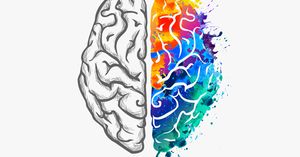February 23, 2019: Difference between revisions
(Tweaked.) |
(Added image.) |
||
| (2 intermediate revisions by the same user not shown) | |||
| Line 1: | Line 1: | ||
{{Large|Mindset?}} | |||
[[File:Blog-pic-growth-mindset.jpg|thumb]] | |||
I began reading Carol Dweck’s ''Mindset: The New Psychology of Success'' for our Tuesday meeting of the Chancellor’s Scholars’ Faculty Learning Community. So far, I have learned about two different mindsets: '''fixed''' and '''growth'''. The former ”makes you concerned with how you’ll be judged”; the latter "makes you concerned with improving.”{{sfn|Dweck|2016|p=13}} OK. I definitely have a fixed mindset on many things.<ref>One of her examples is intelligence: do you think people have a fixed intelligence or can it expand? Social factors seem to suggest a fixed intelligence, I don’t know. I guess it depends on how we define intelligence.</ref> My thing is that while I think people can change, they have a propensity to stay the same. Change is tough. It’s deliberate. I think many of my students have a fixed mindset, too: they think they have nothing to learn — and that which they don’t know is not worth knowing. I tend to agree with Mailer, here: | I began reading Carol Dweck’s ''Mindset: The New Psychology of Success'' for our Tuesday meeting of the Chancellor’s Scholars’ Faculty Learning Community. So far, I have learned about two different mindsets: '''fixed''' and '''growth'''. The former ”makes you concerned with how you’ll be judged”; the latter "makes you concerned with improving.”{{sfn|Dweck|2016|p=13}} OK. I definitely have a fixed mindset on many things.<ref>One of her examples is intelligence: do you think people have a fixed intelligence or can it expand? Social factors seem to suggest a fixed intelligence, I don’t know. I guess it depends on how we define intelligence.</ref> My thing is that while I think people can change, they have a propensity to stay the same. Change is tough. It’s deliberate. I think many of my students have a fixed mindset, too: they think they have nothing to learn — and that which they don’t know is not worth knowing. I tend to agree with Mailer, here: | ||
| Line 16: | Line 18: | ||
{{2019|state=expanded}} | {{2019|state=expanded}} | ||
[[Category:02/2019]] | [[Category:02/2019]] | ||
[[Category:Professional]] | |||
Latest revision as of 05:18, 30 January 2020
Mindset?
I began reading Carol Dweck’s Mindset: The New Psychology of Success for our Tuesday meeting of the Chancellor’s Scholars’ Faculty Learning Community. So far, I have learned about two different mindsets: fixed and growth. The former ”makes you concerned with how you’ll be judged”; the latter "makes you concerned with improving.”[1] OK. I definitely have a fixed mindset on many things.[2] My thing is that while I think people can change, they have a propensity to stay the same. Change is tough. It’s deliberate. I think many of my students have a fixed mindset, too: they think they have nothing to learn — and that which they don’t know is not worth knowing. I tend to agree with Mailer, here:
| “ | For life is a contest between people in which the victor generally recuperates quickly and the loser takes long to mend, a perpetual competition of colliding explorers in which one must grow or else pay more for remaining the same (pay in sickness, or depression, or anguish for the lost opportunity), but pay or grow.[3] | ” |
I still have a few chapters to read for Tuesday.
Notes
- ↑ Dweck 2016, p. 13.
- ↑ One of her examples is intelligence: do you think people have a fixed intelligence or can it expand? Social factors seem to suggest a fixed intelligence, I don’t know. I guess it depends on how we define intelligence.
- ↑ Mailer 1959, pp. 349–350.
Works Cited
- Dweck, Carol S. (2016) [2006]. Mindset: The New Psychology of Success. New York: Ballantine Books.
- Mailer, Norman (1959). Advertisements for Myself. Cambridge: Harvard UP.
